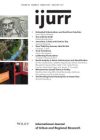The urban planning of municipal territory is still a key element of urban politics despite competition from other types of spatial planning and the influence of supra‐local policies such as those introduced by European institutions. To gauge its importance, I selected the last two master plans developed in the cities of Vigo (Spain) and Porto (Portugal) and examined the contributions of urban movements to citizen participation in these plans. The periods of transition to democracy in both cities prompted the appearance of important citizen movements, but these have evolved differently in each city. This article describes the evolution of these movements in both cities and explains why they culminated in a conflictive participation model in the master plan of Vigo, while in Porto the opportunities for citizen participation in the master plan were neutralized. To conclude, it is argued that this comparison reveals the importance of local contexts of urban governability shaped by a history of strategic interactions between urban movements and elites, which reduces the validity of neoliberal conceptions of governance to explain citizen participation in relation to spatial planning.
Details
Written by:
MIGUEL MARTÍNEZ
Digital Object Identifier (DOI)
10.1111/j.1468-2427.2010.00956.x
About DOI
Read full article as PDF
Read full article as HTML
See the references for this article
